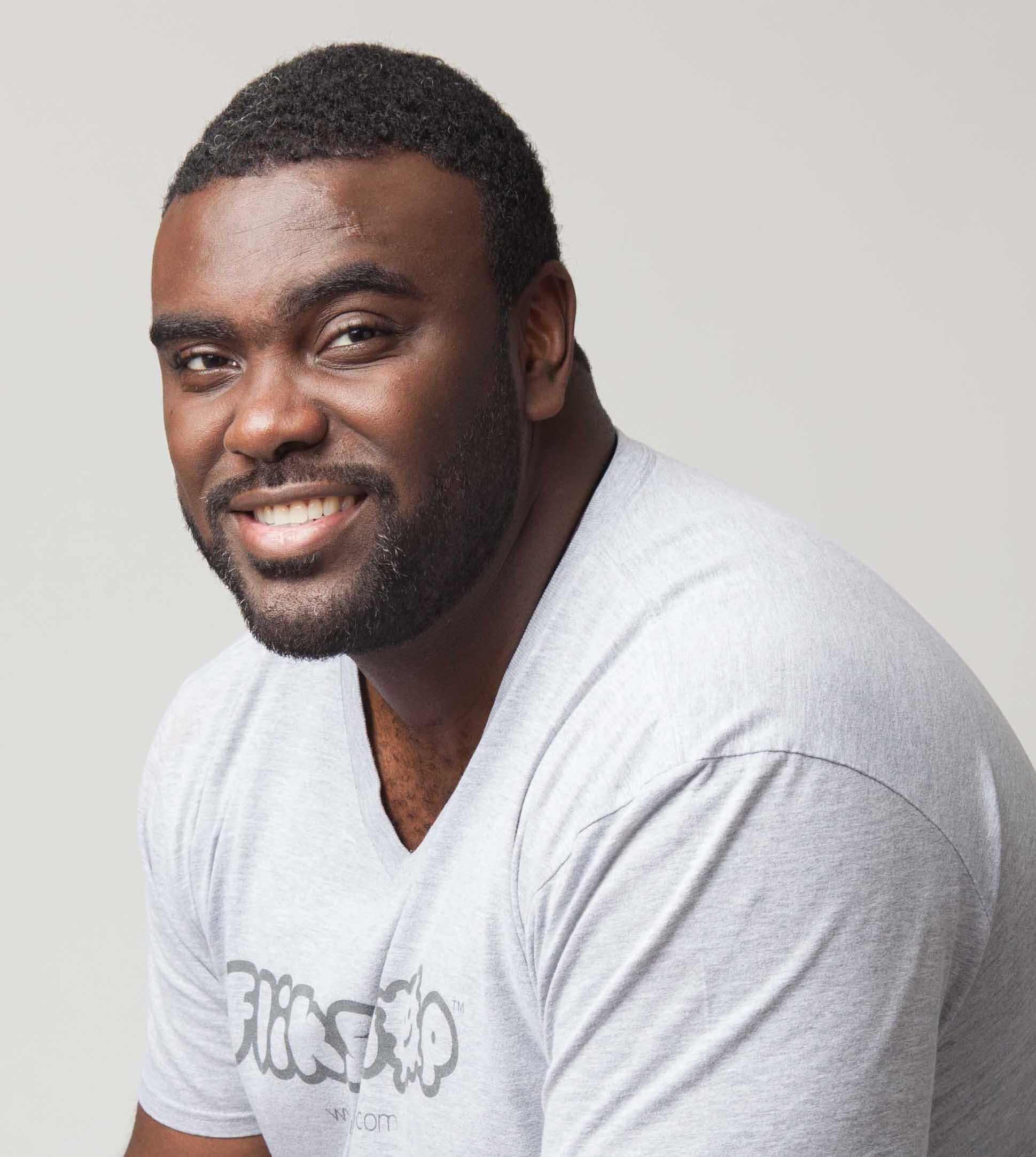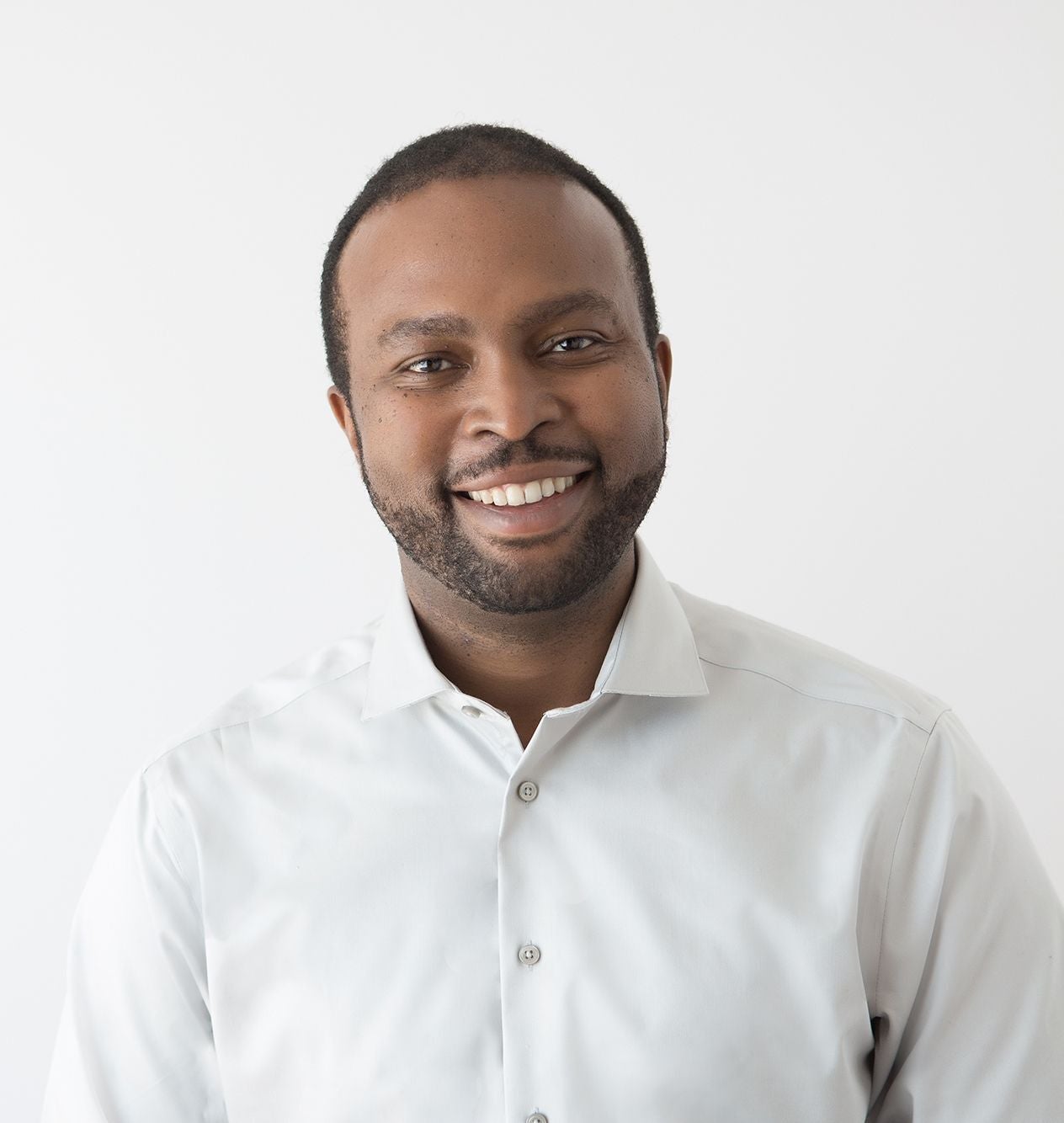
SPONSORED BY AMAZON WEB SERVICES
Technology is undoubtedly shaping the future, but will it also advance social justice and equity?
Two founders think yes.
“If it weren’t for the power of technology, I probably wouldn’t be here right now,” said Marcus Bullock, CEO and founder of Flikshop, a mobile postcard-generation app built on Amazon Web Services (AWS). The project was born out of his personal experience, having previously spent eight years of his life in an adult maximum-security prison after committing a carjacking as a teen. Obviously emotionally distraught, he regularly phoned home to speak to his mom. The only issue was it took $18 each time to make a call.

“I set out to create a way for incarcerated people to maintain their connections with loved ones without bankrupting them. Every family can’t afford to spend all of that money on phone calls,” Bullock told ESSENCE. Thanks to AWS, the world’s leading cloud services provider, Flikshop is able to help incarcerated individuals send personalized e-postcards for $0.99, ultimately helping them maintain strong connections to the loved ones that support them the most.
This is just one instance of how cloud technology can help incarcerated individuals remain connected with their support systems. The applications of cloud technology have a wide breadth of use-cases for social good, it can also help close racial healthcare gaps and ultimately save lives. Hurone AI is a testament to this.
Founded by Dr. Kingsley I. Ndoh, MD, MPH, Hurone AI is a healthcare startup dedicated to reducing the disparities in cancer care and treatment and improving outcomes for women diagnosed with breast cancer in Rwanda. The idea for the company was born after Dr. Ndoh was exposed to inequities in healthcare particularly in sub-Saharan Africa.

“At Hurone AI, we emphasize the need to leverage diverse patient data in order to address the cancer care gap, advance health equity, and improve treatment outcomes for cancer patients around the world,” said Dr. Ndoh.
“The current system of building one-size-fits-all clinical solutions based on limited data cannot serve us for much longer. That’s why our app, Gukiza, is built to be culturally sensitive, taking into account the complexities of caring for underrepresented populations. It’s also flexible enough to serve both advanced and resource-limited healthcare systems,” he adds.
“I’ve been in public health for 17 years, both working in domestic and global health,” Danielle Morris, AWS’s global public health leadtold ESSENCE. “And in my professional experience, I’ve had the opportunity to see how the lack of access to healthcare, the lack of access to high-quality education, or living in an unsafe or unclean environment has an impact on people who look like me and you. Being able to partner with services like AWS is incredibly fulfilling because I know that technology can really be a key tool to create change and address some of those systemic issues that I’ve witnessed.”
Dr. Ndoh uses AWS to power his platform and analyze deep data to help BIPOC patients receive early cancer diagnoses. He is an award recipient of the AWS Health Equity Initiative, a $40M program dedicated to supporting innovators around the world to harness the power of cloud tech to advance global health equity. Through the program, Ndoh was given funding to expand his work and focus on scaling his company to reach more patients in need.
“We want to ensure that leaders like Dr. Ndoh are able to continue doing their important work without barriers. The Health Equity Initiative is one of the many ways that AWS is committed to not only amplifying the work of innovators around the world but also helping them scale their solutions, so that we can collectively improve health outcomes for underserved populations,” Morris told ESSENCE.
Hurone AI’s mission is critically important since mortality rates in low-and middle-income countries are continuing to climb. Sub-Saharan Africa experiences the worst outcomes globally due to deep inequity. For instance, Sub-Saharan Africa has 1 oncologist to 3,000 cancer patients compared to 1 to 294 in the United States.
Fortunately, Ndoh is working to bridge chasms with the support of cloud services.
“I know it’s a long fight, but we’re winning some tough battles thanks to the power of technology.”
Click here to learn more about AWS’s Health Equity Initiative and click here to learn about AWS Startups.